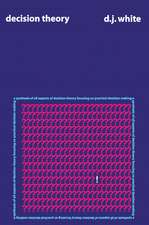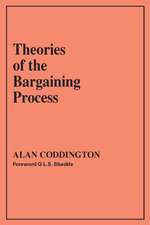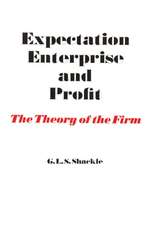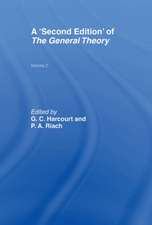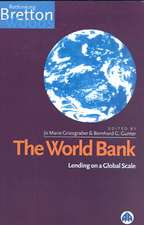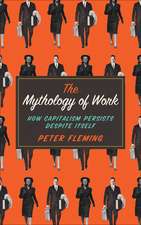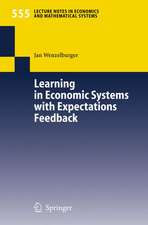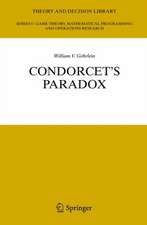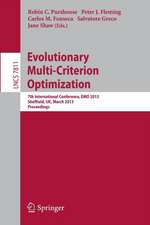The Death of Homo Economicus: Work, Debt and the Myth of Endless Accumulation
Autor Peter Flemingen Limba Engleză Paperback – 19 sep 2017
For neoclassical economists, Homo economicus, or economic human, represents the ideal employee: an energetic worker bee that is a rational yet competitive decision-maker. Alternatively, one could view the concept as a cold and selfish workaholic endlessly seeking the accumulation of money and advancement—a chilling representation of capitalism. Or perhaps, as Peter Fleming argues, Homo economicus does not actually exist at all.
In The Death of Homo Economicus, Fleming presents this controversial claim with the same fierce logic and perception that launched his Guardian column into popularity. Fleming argues that as an invented model of a human being, Homo economicus is, in reality, a tool used by economists and capitalists to manage our social world through the state, business, and even family. As workers, we are barraged with constant reminders that we should always strive toward this ideal persona. It’s implied—and sometimes directly stated—that if we don’t then we are failures. Ironically, the people most often encouraged to emulate this model are those most predisposed to fail due to their socioeconomic circumstances: the poor, the unemployed, students, and prisoners.
Fleming illuminates why a peculiar proactive negativity now marks everyday life in capitalist societies, and he explores how this warped, unattainable model for workers would cause chaos if enacted to the letter. Timely and revelatory, The Death of Homo Economicus offers a sharp, scathing critique of who we are supposed to be in the workplace and beyond.
In The Death of Homo Economicus, Fleming presents this controversial claim with the same fierce logic and perception that launched his Guardian column into popularity. Fleming argues that as an invented model of a human being, Homo economicus is, in reality, a tool used by economists and capitalists to manage our social world through the state, business, and even family. As workers, we are barraged with constant reminders that we should always strive toward this ideal persona. It’s implied—and sometimes directly stated—that if we don’t then we are failures. Ironically, the people most often encouraged to emulate this model are those most predisposed to fail due to their socioeconomic circumstances: the poor, the unemployed, students, and prisoners.
Fleming illuminates why a peculiar proactive negativity now marks everyday life in capitalist societies, and he explores how this warped, unattainable model for workers would cause chaos if enacted to the letter. Timely and revelatory, The Death of Homo Economicus offers a sharp, scathing critique of who we are supposed to be in the workplace and beyond.
Preț: 158.70 lei
Nou
Puncte Express: 238
Preț estimativ în valută:
30.37€ • 31.63$ • 25.67£
30.37€ • 31.63$ • 25.67£
Carte tipărită la comandă
Livrare economică 10-24 martie
Preluare comenzi: 021 569.72.76
Specificații
ISBN-13: 9780745399409
ISBN-10: 0745399401
Pagini: 224
Dimensiuni: 133 x 216 x 25 mm
Greutate: 0.41 kg
Editura: PLUTO PRESS
Colecția Pluto Press
ISBN-10: 0745399401
Pagini: 224
Dimensiuni: 133 x 216 x 25 mm
Greutate: 0.41 kg
Editura: PLUTO PRESS
Colecția Pluto Press
Notă biografică
Peter Fleming is professor of business and society at Cass Business School, City University London. He is a columnist for the Guardian and the author of The Mythology of Work, also published by Pluto Press.
Cuprins
Introduction: Welcome to the New Dark Ages
1 Cash Psychosis
2 Wreckage Economics
3 Why Homo Economicus had to Die … Over and Over Again
4 The Theatre of Loss … Work
5 Microeconomics (really is) for Dummies
6 The Quiet Earth
Conclusion: A Marginal Model of Nothingness
Notes
Index
1 Cash Psychosis
2 Wreckage Economics
3 Why Homo Economicus had to Die … Over and Over Again
4 The Theatre of Loss … Work
5 Microeconomics (really is) for Dummies
6 The Quiet Earth
Conclusion: A Marginal Model of Nothingness
Notes
Index
Recenzii
“Sparklingly sardonic. . . . Fleming warns that if we do nothing, a dark ‘winter’ of humanity is coming. Yet the nicest thing about his book is its avoidance of despair: it is often hilariously angry, but the stylish expression of outrage can itself be a positive and optimistic act.”
“The Death of Homo Economicus argues forcefully that most economists don’t know what they are talking about.”


